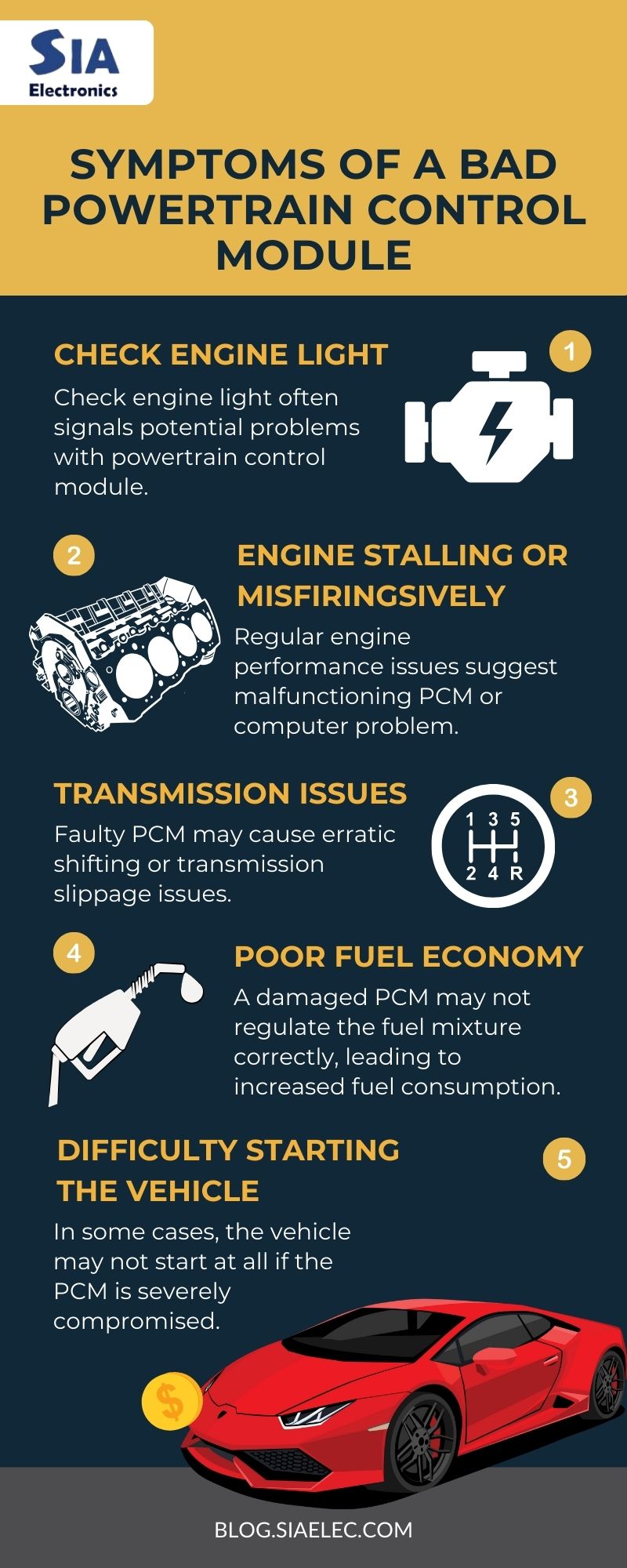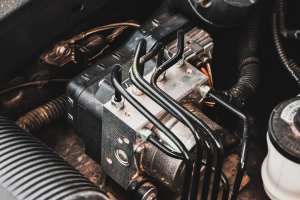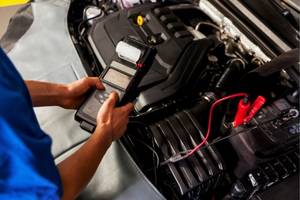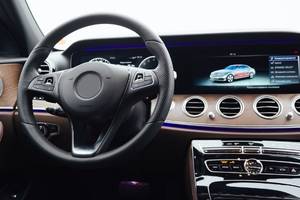Table of Contents
Introduction
When you hear about modern vehicles, terms like "Powertrain Control Module" (PCM) often come up. But what exactly is a Powertrain control module? How does it function within your car, and why is it so crucial? In this comprehensive guide, we will explore everything you need to know about PCMs, including their role, functionality, and the common issues associated with them.
What is a Powertrain Control Module?
A Powertrain Control Module, or PCM, is an essential electronic component in modern vehicles. It is a combined control unit that integrates the functions of the Engine Control Module (ECM) and the Transmission Control Module (TCM). Essentially, the PCM is the brain of the vehicle, managing both the engine and transmission to ensure optimal performance and efficiency.
How Does a Powertrain Control Module Work?
The PCM receives input from various sensors located throughout the vehicle. These sensors monitor numerous aspects, including:
- Engine speed (RPM)
- Coolant temperature
- Oxygen levels in the exhaust
- Throttle position
- Vehicle speed
Using this data, the PCM makes real-time adjustments to the engine and transmission to ensure smooth operation. For example, it can alter fuel injection timing, control ignition timing, and manage transmission shifts. This ensures that the vehicle runs efficiently, meets emission standards, and provides a pleasant driving experience.
Symptoms of a Bad Powertrain Control Module
A failing PCM can lead to numerous problems with your vehicle. Some common symptoms include:
- Check Engine Light: This is often the first sign of PCM issues. The check engine light might turn on for a variety of reasons, but if it's accompanied by other symptoms, the PCM could be the culprit.
- Engine Stalling or Misfiring: Irregular engine performance, such as stalling or misfiring, can indicate a malfunctioning PCM.
- Transmission Issues: Since the PCM controls the transmission, any erratic shifting or transmission slippage might be due to a faulty PCM.
- Poor Fuel Economy: A damaged PCM may not regulate the fuel mixture correctly, leading to increased fuel consumption.
- Difficulty Starting the Vehicle: In some cases, the vehicle may not start at all if the PCM is severely compromised.
Difference Between an ECM and a PCM
The terms ECM (Engine Control Module) and PCM (Powertrain Control Module) are often used interchangeably, but they refer to different components:
- ECM: The Engine Control Module specifically manages the engine's performance, including fuel injection, ignition timing, and air-fuel ratio.
- PCM: The Powertrain Control Module includes all the functions of the ECM but also controls the transmission. Essentially, the PCM is a more comprehensive unit, overseeing both the engine and transmission systems.
Location of the Powertrain Control Module in Most Vehicles
In most vehicles, the PCM is typically located in the engine compartment. However, its exact location can vary depending on the make and model of the vehicle. Common locations include:
- Under the Hood: Mounted near the engine or the battery.
- Passenger Compartment: Beneath the dashboard or behind the glove compartment.
- Trunk: In some vehicles, the PCM might be located in the trunk, particularly in luxury models.
Conclusion
Understanding the Powertrain Control Module (PCM) is crucial for vehicle owners and enthusiasts alike. This integral component ensures that your vehicle runs smoothly by managing both the engine and transmission. Recognizing the symptoms of a bad PCM can save you from costly repairs and maintain your vehicle's performance.
At SIA Electronics, we specialize in the re-manufacturing of automotive electronic control modules, including PCMs. With over 20 years of experience, we ensure your vehicle's electronic systems are in top condition, providing reliable performance and efficiency.
FAQs on
What is a Powertrain Control Module? : A complete guide
-
1. What are the primary functions of a Powertrain Control Module (PCM)?
Ans.
The Powertrain Control Module (PCM) integrates the functions of the Engine Control Module (ECM) and the Transmission Control Module (TCM). It manages the engine and transmission by processing data from various sensors, adjusting fuel injection, ignition timing, and transmission shifts to optimize vehicle performance and efficiency.
-
2. How can I tell if my vehicle's PCM is malfunctioning?
Ans.
Common symptoms of a malfunctioning PCM include the Check Engine Light illuminating, irregular engine performance such as stalling or misfiring, erratic transmission shifting or slippage, poor fuel economy, and difficulty starting the vehicle. If you notice these issues, it's advisable to have your PCM checked.
-
3. What distinguishes an Engine Control Module (ECM) from a Powertrain Control Module (PCM)?
Ans.
The Engine Control Module (ECM) specifically manages engine performance aspects such as fuel injection and ignition timing. In contrast, the Powertrain Control Module (PCM) incorporates all the ECM functions and additionally controls the transmission, making it a more comprehensive control unit for both the engine and transmission.
-
4. Where is the PCM typically located in a vehicle?
Ans.
The PCM is commonly located in the engine compartment, near the engine or battery. It may also be found in the passenger compartment beneath the dashboard or behind the glove compartment, and in some vehicles, it could be located in the trunk, especially in luxury models.
-
5. Can a faulty PCM affect my vehicle's fuel economy?
Ans.
Yes, a faulty PCM can adversely impact fuel economy. Since the PCM controls the fuel injection and air-fuel mixture, a malfunction may result in improper fuel regulation, leading to increased fuel consumption and decreased efficiency.
-
6. How can SIA Electronics assist with PCM issues?
Ans.
SIA Electronics specializes in the re-manufacturing of automotive electronic control modules, including PCMs. With over 20 years of experience, they ensure that your vehicle's electronic systems are thoroughly inspected and repaired, providing reliable performance and improved efficiency.



